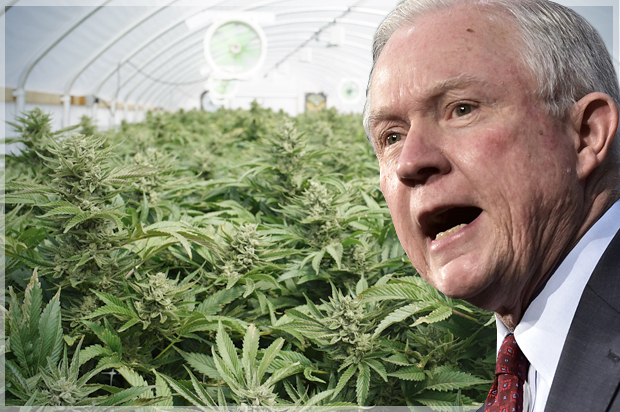On the final day of Black History Month, Attorney General Jeff Sessions announced that his Department of Justice will “pull back” on efforts to probe civil rights violations by police departments in several major American cities “out of a concern to make the lives of people, particularly in poor, minority communities safer [and] happier.”
In remarks to the National Association of Attorneys General in Washington on Tuesday, Sessions said he doesn’t “think it’s wrong or mean or insensitive to civil rights” to drop investigations of certain police departments in the wake of high-profile police killings of black men and women.
“We need, so far as we can, to help police departments get better, not diminish their effectiveness. And I’m afraid we’ve done some of that,” Sessions told the gathered prosecutors. The former senator from Alabama repeated the so-called Ferguson myth circulated by James Comey, the FBI director, contending that because of protests police officers are “more reluctant to get out of their squad cars and do the hard but necessary work of up-close policing that builds trust and prevents violent crime.”
Sessions argued that “recent increases in violent crimes do not appear to be an aberration, a one-time blip….I’m afraid it represents the beginning of a trend.” He added, “Where you see the greatest increase in violence and murders in cities is [where] somehow, some way, we undermine the respect for our police and make, oftentimes, their job more difficult.”
Crime rates are half of what they were in the 1980s and 1990s, and it’s hardly clear that the recent spike in violent crime in a few cities reflects a national trend instead of an anomaly.
Still, Sessions said that law enforcement and prosecutors “need to return to the ideas that got us here, the ideas that reduce crime and stay on it.”
Yet broken windows policing and stop-and-frisk tactics has been abandoned by several major cities without any corollary spike in crime.
“We need to support the brave men and women of law enforcement as they work day and night to protect us,” Sessions continued.
Under the Obama administration, the Justice Department opened 25 investigations into police departments and sheriff’s offices. It also enforced 19 agreements by the end of 2016, which resolved civil rights lawsuits filed against police departments in Ferguson, Missouri; Baltimore, New Orleans, Cleveland and 15 other cities.
Sessions dismissed the Obama-era Justice Department studies on systemic abuses committed by police in those cities and claimed the reports were “pretty anecdotal and not so scientifically based.”
Referring to the 800,000 law enforcement officers serving across the country, Sessions insisted that “some people are going to make errors.”
But speaking to the state attorneys generals, Sessions did not extend the same generosity of spirit to understanding Americans who have been convicted of a crime: “We need to enforce our laws and put bad men behind bars,” he said.
There are nearly 1.6 million Americans in state or federal prison. According to 2014 Census data, more young black high school dropouts are in prison than with jobs.
Sessions, who last year claimed that “good people don’t smoke marijuana,” baselessly asserted on Tuesday, “We’re seeing real violence around that.”
According to Politico, Sessions told reporters on Tuesday that “experts are telling me there’s more violence around marijuana than one would think and there’s big money involved.”
The attorney general said he is reviewing the Justice Department’s current policy about enforcing federal laws prohibiting possession of marijuana but has made no decision about whether to become tougher.
“I’m definitely not a fan of expanded use of marijuana,” he said. “I don’t think America will be a better place when more people, especially young people, smoke pot.”
The current policy, spelled out in a 2013 memo from James Cole, the former deputy attorney general, said federal prosecutions would focus on distribution to minors, the involvement of gangs or organized crime and growing marijuana plants on federal land.
“It remains a violation of federal law,” Sessions reminded reporters.
But Marijuana Majority chair Tom Angell told The Huffington Post that “by talking about marijuana and violence, the attorney general is inadvertently articulating the strongest argument that exists for legalization. . . . The only connection between marijuana and violence is the one that exists when illegal sellers battle it out for profits in the black market.”
According to a 2014 study in JAMA Internal Medicine, from 1999 to 2010 states with medical marijuana laws experienced about 25 percent fewer opiate overdose deaths than those without such legislation. Months after Colorado legalized recreational use in 2014, the Denver Police Department reported a quarterly drop in violent crime and property crime. On Tuesday Sessions, however, spoke sympathetically about Nebraska’s filing a lawsuit to block the flow of marijuana from Colorado.
The day before Sessions made clear that the Justice Department planned to reverse six years of litigation to switch sides in a legal battle over Texas’ strict voter-ID law.

